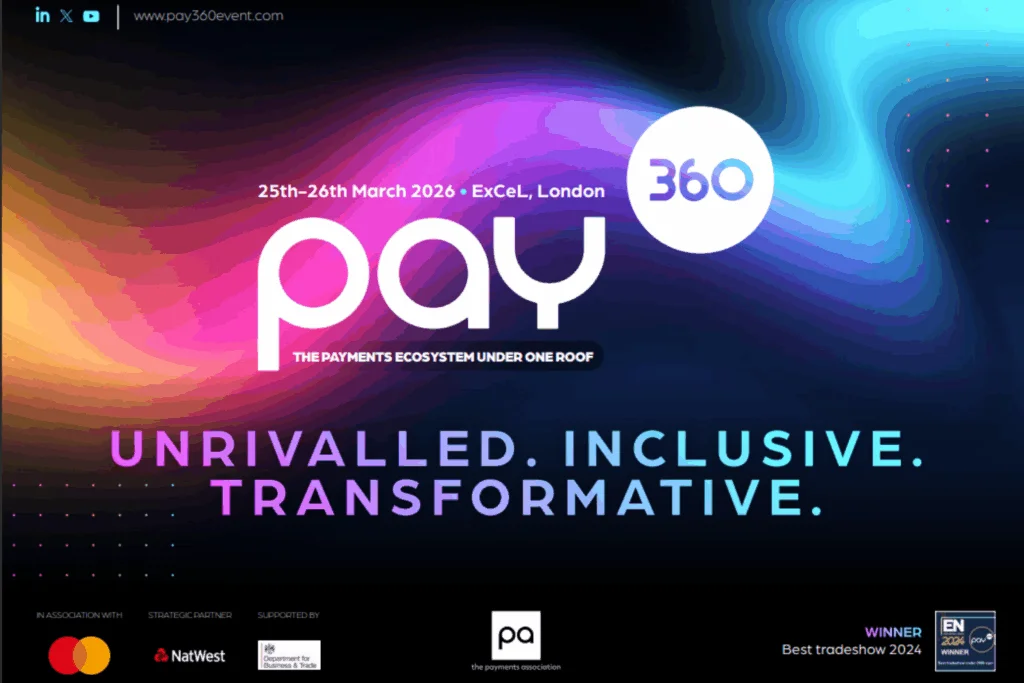
In a market flooded with opportunity but fierce with competition, how do you make sure you’re the one getting the offer?
Whether you’re a Data Engineer, Machine Learning specialist, BI Analyst or KDB Developer, 2025 is shaping up to be a defining year for data professionals in FinTech. The demand is high, but so are expectations. And with hiring strategies shifting across the industry, your job search needs to be sharper than ever.
Here’s everything you need to know to get ahead and get hired.
The State of Data Hiring in FinTech Right Now
From New York to London to Belfast, FinTech companies are scaling data capabilities faster than ever. AI is no longer an emerging trend, it’s table stakes. Real-time analytics, automation, and regulatory transformation are all driving the need for better data talent.
That’s good news for you. But it also means you’re not the only one on the radar.
FinTech firms are hiring across:
- Data Engineering
- Machine Learning & AI
- Business Intelligence & Reporting
- KDB Development
- Data Governance & Compliance
With new budgets and urgent projects, roles are opening up quickly, but closing just as fast.
Why You’re Not Getting Data Job Role Offers
Even if you're highly skilled, there are common traps that stop brilliant people from landing the roles they deserve. Here's what we see every day:
1. Not tailoring CVs to role types (perm vs contract)
Hiring managers review hundreds of applications. If your CV doesn’t align with what they need, project scope, timeframes and domain context, it won’t get shortlisted.
Tip: Have two versions of your CV: one focused on long-term impact (for permanent roles) and one highlighting speed, delivery, and adaptability (for contracts).
2. Underestimating the soft skills
Tech teams in FinTech want more than raw capability. They want problem-solvers who can communicate cross-functionally, handle pressure and add business value.
Tip: Don’t just say you “built data pipelines.” Say you “built scalable data pipelines that reduced processing time by 40% and unlocked real-time insights for trading teams.”
3. Applying too slowly, or too widely
Top candidates are snapped up within days. Meanwhile, spraying your CV across every open role dilutes your focus and stalls your momentum.
Tip: Be targeted. Work with a recruiter who specialises in FinTech data roles so you’re the first to know when high-quality jobs open up.
What FinTech Firms Are Really Looking For
We speak to FinTech companies daily. Here’s what’s rising to the top of their wish lists in 2025:
- Cloud-native skills (AWS, GCP, Azure)
- Python + SQL proficiency
- Experience with streaming data tools (Kafka, Spark, Flink)
- Strong understanding of data architecture and governance
- ML/AI experience applied to real-world business problems
- Domain knowledge (e.g. capital markets, crypto, payments)
- KDB/Q for ultra-low latency environments
And above all: people who can deliver value fast, whether in permanent or contract roles.
How to Write a FinTech CV That Gets You Hired for a Data Role
In a competitive FinTech landscape, your CV needs to work as hard as you do. The best data professionals don’t just list tools, they show value delivered.
Here’s how to structure your CV for FinTech Data hiring managers in 2025:
Start with a punchy personal profile. Mention your role, specialism (e.g., “Senior Data Engineer with expertise in ML pipelines”), and what kind of opportunity you’re looking for.
Highlight domain context. Worked in payments, capital markets, or regtech? That makes a big difference. Tailor each CV to reflect the FinTech vertical.
Quantify your impact. Replace “responsible for data models” with “built predictive models that improved customer churn forecasting by 20%.”
Add tech stack clarity. Use clear formatting (Python | AWS | Kafka | KDB+ | Tableau) so applicant tracking systems (ATS) and hiring managers can scan it quickly.
Keep it concise. Aim for 2 pages max (3 if contracting with multiple roles) and make every bullet point count.
Pro tip: Save your CV with SEO in mind too. Use a filename like Firstname_Lastname_Data_Engineer_FinTech_2025.pdf. It sounds simple, but it makes a difference.
The Pros and Cons of Contracting vs Permanent Data Jobs in FinTech
This is one of the most common questions we get from data professionals. Here’s a breakdown to help guide your decision:
| Permanent | Contract |
Security | Higher | Lower |
Salary (per hour) | Lower | Higher |
Career Development | Structured | Self-Driven |
Exposure | Longer-Term Projects | High Impact, Short Term Work |
Pace of Hiring | Slower | Faster |
Tip: Contractors with niche skills (like KDB, AI/ML, or cloud-native engineering) are in particularly high demand right now.
Hot Locations for FinTech Data Jobs
We’re seeing huge demand across our core hubs:
- New York: High-growth startups and hedge funds hiring for ML and quant data roles
- London: Strong demand in digital banking, payments, and regtech
- Belfast: Rapidly scaling engineering hubs and cost-effective teams with global reach
Remote roles are also on the rise, especially for contractors with proven delivery experience.
FinTech Salary Benchmarks for Data Roles in 2025
If you’re not sure what you should be earning, you’re not alone. Here’s what we’re seeing as standard ranges across core markets (in local currencies):
Download our Financial Technology Salary Survey Guide here.
Tip: Roles in NYC and London often offer higher base salaries, while Belfast roles offer cost-of-living advantages and faster promotion potential.
Remote vs On-Site: What FinTech Candidates Need to Know
The hybrid debate continues, but for data talent, flexibility is often negotiable.
Here’s what to consider:
- Startups often expect more on-site collaboration during scale-up phases.
- Enterprise FinTechs may offer 2–3 days remote as standard.
- Contract roles tend to be more flexible, especially with delivery-based KPIs.
- Niche talent (e.g., KDB or AI engineers) may be offered remote-first terms to close quickly.
Tip: Always ask about team culture, toolsets, and expectations in the hiring process—it tells you more than a remote policy ever could.
Career Progression: What’s Next After a Data Role in FinTech?
If you’re wondering what your next move could look like, here are common career trajectories:
- Data Engineer → Lead Engineer → Head of Data or CTO
- BI Analyst → Data Product Manager or Business Strategist
- ML Engineer → AI Lead or Quant Strategist
- KDB Developer → Quant Developer or Trading Technology Lead
Upskilling in leadership, product thinking, and domain expertise (e.g., crypto, wealthtech, regtech) is a strong lever for promotions.
Tip: Ask your recruiter about roles where you’ll work closely with commercial, trading, or product teams; these unlock more senior, cross-functional opportunities.
Success Tips from Our FinTech Candidates
After placing hundreds of advanced data professionals across FinTech, here’s what our most successful candidates did differently:
- They were clear on what they wanted. This helped us match them faster to roles they’d accept.
- They stayed responsive. Interviews, coding tests, and references moved in days, not weeks.
- They focused on outcomes. CVs and interviews weren’t a list of tools, they told a story of results.
- They trusted the process. We advised them on offers, pushed back where needed, and helped them land roles aligned to their goals.
How to Stand Out to FinTech Recruiters in a Competitive Market
After placing hundreds of data professionals across FinTech roles in New York, London, and Belfast, we’ve seen it all. Here are a few truths we wish every job-seeker knew:
- Being too humble can cost you interviews. Brag strategically. If you’ve saved millions through smart data architecture, say it.
- You don’t need every requirement in the spec. If you meet 70–80% and have strong learning agility, apply. Specs are often wish lists, not checklists.
- Ghosting damages your reputation. Not replying to interview invites, offers, or messages can burn bridges quickly in close-knit FinTech circles.
- You can negotiate more. Especially for contract rates or offers with strong counter-options. A good recruiter will help you push for what you’re worth.
- LinkedIn is your second CV. Keep it updated, keyword-rich and aligned with your latest wins. FinTech hiring managers will check.
Work With a Specialist FinTech Recruiter Like Harrington Starr
You could keep applying to roles on job boards, but in a market moving this fast, you’ll be late to the best opportunities.
At Harrington Starr we specialise in:
- Data Engineers
- ML Engineers
- BI Analysts
- KDB Developers
- AI Specialists
- Heads of Data
- Data Governance professionals
And more.
Whether you’re looking for your next contract, a permanent step up, or a move to a new city, we’ve got you covered.
Find Your Next FinTech Data Role Today
FinTech is hiring, but not waiting.
If you're ready to work with a recruiter who speaks your language, understands the tech, and knows the market inside out, let’s talk.
Browse open roles or send us your CV and let’s start a conversation.
Reach out to our Data Recruitment Specialists
James.platt@harringtonstarr.com
Sean.kennedy@harringtonstarr.com
At Harrington Starr, James Platt and Sean Kennedy specialise in connecting the most in-demand data professionals with the most exciting roles across FinTech. They don’t just know job specs, they know what great data careers really look like.
From global banks to high-growth scale-ups, our Data team partners with companies that value innovation, career growth, and the impact data can have on business success.
Want a role where your work actually drives decisions?
Want to stay hands-on with the latest tech and tools?
Want to work with a recruiter who gets it?







